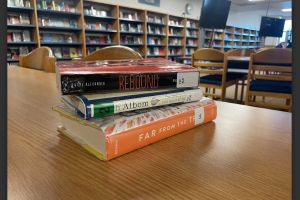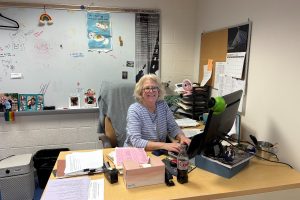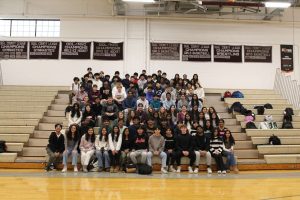“One to World” program unanimously approved
March 1, 2016
The long awaited One to One program, now known as One to World, was unanimously approved by the Westford School Committee at their meeting on Monday, February 29th.
After much discussion and a full layout of the entire program, the committee decided to vote immediately, and faced no dissent to moving the program forward.
Presenting to the committee on Monday evening was Assistant Superintendent Kerry Cleary, Principal Jim Antonelli, Director of Digital Learning Julie Baudreau, and Director of Technology Mike Wells.
In a slideshow presentation, the group laid out their entire plan and goals of the program. These goals include the improvement in engagement, tailored learning, and teacher-student interaction.
Crediting an extensive advisory board, the group cut to the chase and proposed the plan to provide all freshmen in the class of 2020 with Chromebooks to be brought to and from school each day. The nomenclature of the program has also been changed, now being known as One to World, emphasizing the students’ connection to the world.
The laptops would be kept for four years by the students. However, students have a second option to bring their own device and have it approved by WPS standards and be placed on the WA network.
Regarding their choice to use Chromebooks, the panel explained that they are the most affordable and easily managed by the school. Furthermore, less tech support and therefore no more man power would be needed, and these devices would be ready to be used for the eventually required online testing in Massachusetts schools by 2019.
Antonelli spoke specifically about the training of teachers, referencing that the teachers were trained and “eager” to begin the program. He also noted that he finds many teachers planning their lessons around the availability of technology, and stated that this would solve that problem.
Students will also be offered an optional but recommended insurance policy of $40 per year to protect a broken device. WA also intends to add a new course where students will be taught to run a help desk for the new technology to troubleshoot, as well as learning organization and customer service skills.
Wells offered his perspective of the internet preparation needed at WA for these new laptops. After presenting data of 1461 non curriculum devices on the school wifi, compared to 464 curriculum devices per day.
Funding was a major talking point for the panel, as they brought forward their creative plan to fund One to World. The need for 500 devices and 500 cases for these devices will cost about $137,000.
Therefore, the panel decided to use tuition from 12 Chinese exchange students in partnership with the Cambridge Institute, totaling $174,000, to keep the program budget neutral. The remaining money will be used to fund the needed programs for the Chinese students such as language support. These student should be here for one year on a non-diploma program.
Following the presentation, the committee raised questions about the integrity of the nature of the funding, one member noting that it did not make him feel good. Cleary addressed these fears stating that they had already planned to offer this program, and saw it as a way to fund the laptops.
The next step of the program is to get registration from students to come to the US for the exchange program to fund the laptops.







